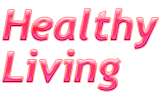- Eggs
- Greek Yogurt
- Fat-Free Organic Milk
- Beans
- Nuts
Nutrition
Nutrients provide energy or nourish your body in some way. A healthy diet provides all of the nutrients your body needs without excessive calories. The types of sugar you eat, your balance of calories and absorption of minerals are key elements that determine whether you get the nutrients you need. Nutrition, nourishment, or aliment, is the supply of materials - food - required by organisms and cells to stay alive. In science and human medicine, nutrition is the science or practice of consuming and utilizing foods. Nutritional science studies how the body breaks food down (catabolism) and repairs and creates cells and tissue (anabolism) - catabolism and anabolism = metabolism. Nutritional science also examines how the body responds to food.
Eat Fruits
Protect everything from your prostate to your erections with these essential selections from nature’s medicine cabinet.
- Açaí actually deserves some of the hype it gets, thanks to weapons grade antioxidant levels that clobber other
- Apples are a great fiber source.Apples provide protect from heart disease and possibly allergic reactions.
- Banana is loaded with potassium, which can lower your blood pressure, and is one of the best sources of Resistant Starch
- Cherries owe their deep red color to an antioxidant called anthocyanin, which can reduce inflammation and lower triglyceride and cholesterol levels
- All citrus, from limes to tangerines, are chock-full of vitamin C, fiber, and small amounts of other nutrients and disease-fighting chemicals.
Nutrition Facts
Nutrition is the science that interprets the interaction of nutrients and other substances in food (e.g. phytonutrients, anthocyanins, tannins, etc.) in relation to maintenance, growth, reproduction, health and disease of an organism. It includes food intake, absorption, assimilation, biosynthesis, energy metabolism, catabolism and excretion. Nutrition is the science that interprets the interaction of nutrients and other substances in food (e.g. phytonutrients, anthocyanins, tannins, etc.) in relation to maintenance, growth, reproduction, health and disease of an organism. It includes food intake, absorption, assimilation, biosynthesis, energy metabolism, catabolism and excretion.
